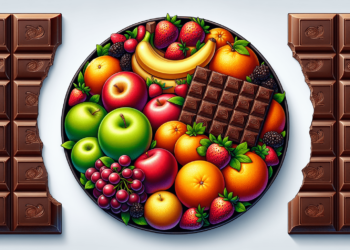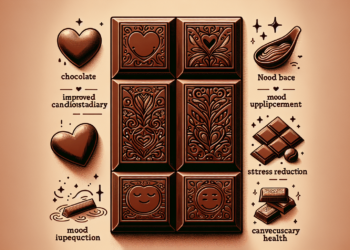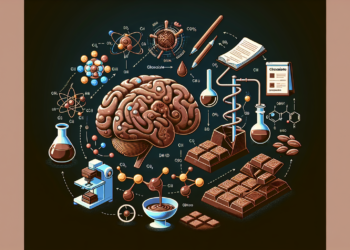The Science Behind Food Cravings
Have you ever wondered why you suddenly crave chocolate or cheeseburgers out of nowhere? The answer lies in the intricate workings of our bodies and specifically, the hormones that are responsible for these cravings. What hormone could it be that makes you reach for that delicious piece of chocolate? Let’s delve into the science behind food cravings.
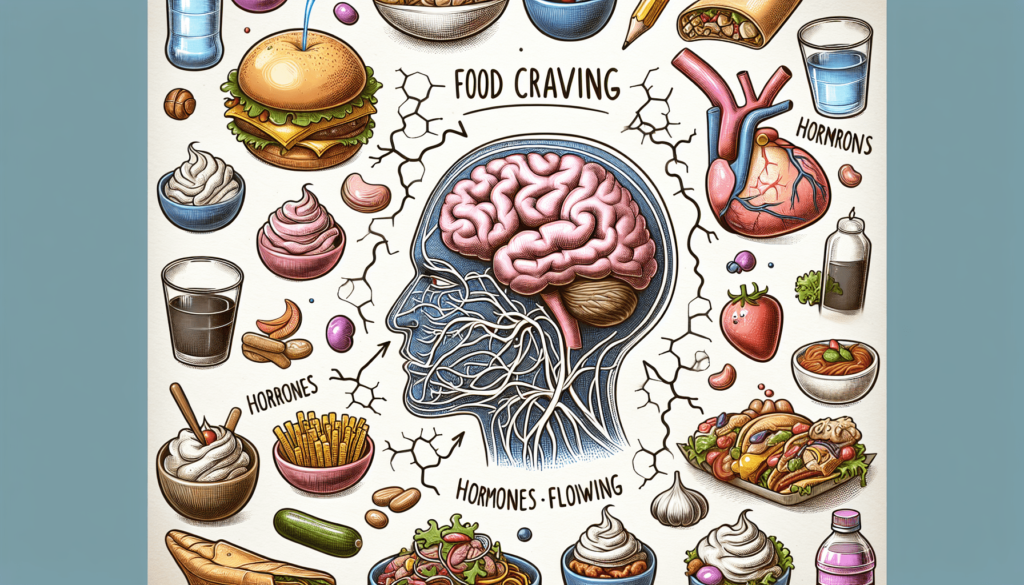
Hormones and Food Cravings
Hormones play a crucial role in regulating our appetite, metabolism, and overall food preferences. When it comes to food cravings, certain hormones are at the forefront of driving these desires. One such hormone that is often associated with food cravings is ghrelin.
Ghrelin and Hunger
Ghrelin, often referred to as the “hunger hormone,” is produced in the stomach and signals to your brain that you are hungry. When ghrelin levels rise, they stimulate appetite and promote the intake of food, especially high-calorie foods. This hormone is at its peak just before meals and decreases after eating, making you feel satisfied.
Have you ever noticed that when you’re hungry, you tend to crave more indulgent or calorically-dense foods like sweets and fatty snacks? That’s the influence of ghrelin at play.
Serotonin and Food Cravings
Another key player in the realm of food cravings is serotonin, often known as the “feel-good” hormone. Serotonin is a neurotransmitter that helps regulate mood, appetite, and sleep. This hormone is closely associated with feelings of well-being and happiness, and its levels can impact your food choices.
Serotonin and Carbohydrate Cravings
Low levels of serotonin in the body have been linked to an increase in carbohydrate cravings. Carbohydrates are known to boost serotonin levels temporarily, making you feel more content and relaxed. This is why when you’re feeling down or stressed, you may find yourself reaching for that bag of chips or bowl of pasta.
Understanding the role of serotonin in your food cravings can help you make more informed choices about what you eat when these cravings strike.
Leptin and Food Cravings
Leptin is another hormone that plays a significant role in regulating food intake and energy balance. Produced by fat cells, leptin functions as a satiety hormone, signaling to your brain that you are full and satisfied. However, disturbances in leptin levels can lead to increased food cravings and overeating.
Leptin Resistance and Food Cravings
Leptin resistance occurs when your body becomes less responsive to the signals of this hormone, leading to a lack of satiety and increased hunger. This can result in cravings for high-calorie foods and difficulty controlling portion sizes.
By understanding how leptin levels affect your cravings, you can take steps to support healthy eating habits and manage your appetite more effectively.
Insulin and Food Cravings
Insulin is a hormone that plays a crucial role in regulating blood sugar levels and metabolism. When you consume carbohydrates, your body releases insulin to help transport glucose from your bloodstream into your cells for energy. However, imbalances in insulin levels can influence your food cravings.
Insulin and Sugar Cravings
Consuming foods high in sugar can cause rapid spikes and drops in blood sugar levels, leading to cravings for more sugary foods. Insulin helps regulate these fluctuations, but excessive consumption of sugary foods can disrupt this balance and contribute to ongoing cravings.
Being mindful of your sugar intake and opting for complex carbohydrates can help stabilize your blood sugar levels and reduce cravings for sweet treats.
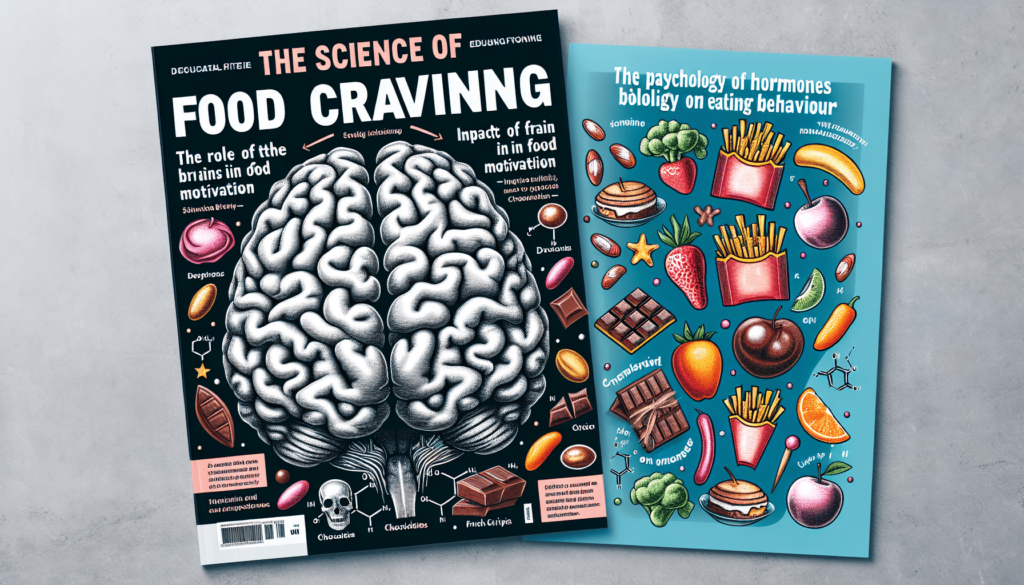
Cortisol and Food Cravings
Cortisol, often dubbed the “stress hormone,” is produced by the adrenal glands in response to stress and perceived threats. Elevated cortisol levels can impact your appetite and food choices, leading to cravings for comfort foods high in sugar, fat, and salt.
Stress Eating and Food Cravings
During times of stress, your body releases cortisol to help mobilize energy and resources for a “fight or flight” response. However, chronic stress and elevated cortisol levels can disrupt your appetite-regulating hormones, making you more prone to emotional eating and cravings for unhealthy foods.
Finding healthy ways to manage stress, such as exercise, meditation, and relaxation techniques, can help reduce cortisol levels and curb stress-related food cravings.
Dopamine and Food Cravings
Dopamine is a neurotransmitter that plays a crucial role in the brain’s reward system and pleasure pathways. Foods high in fat, sugar, and salt have been shown to activate dopamine release in the brain, leading to feelings of pleasure and satisfaction.
Dopamine and Cravings for Rewarding Foods
When you consume foods that trigger dopamine release, such as pizza, french fries, or ice cream, your brain associates these foods with pleasure and reward. This association can drive cravings for these types of “feel-good” foods, even when you’re not hungry.
Understanding the role of dopamine in your food cravings can help you make more mindful choices about the foods you eat and develop healthier eating habits over time.
Strategies to Manage Food Cravings
While hormones play a significant role in driving food cravings, there are practical strategies you can implement to manage and reduce these impulses. By being mindful of your body’s signals and making informed choices about what you eat, you can better control your cravings and support a balanced approach to nutrition.
Practice Mindful Eating
Engaging in mindful eating practices can help you become more attuned to your body’s hunger and fullness cues. By slowing down, savoring each bite, and paying attention to your food choices, you can develop a healthier relationship with food and reduce mindless cravings.
Stay Hydrated
Sometimes, what we perceive as hunger cravings are actually signals of thirst. By staying well-hydrated throughout the day, you can help prevent unnecessary food cravings and maintain optimal hydration levels. Opt for water, herbal teas, or infused beverages to quench your thirst and support your overall well-being.
Prioritize Balanced Meals
Eating balanced meals that include a mix of protein, carbohydrates, healthy fats, and fiber can help stabilize your blood sugar levels and reduce cravings for unhealthy foods. Focus on nutrient-dense whole foods, such as fruits, vegetables, lean proteins, and whole grains, to support your energy levels and appetite regulation.
Get Adequate Sleep
Lack of sleep can disrupt hormone levels, including ghrelin and leptin, which regulate hunger and fullness. By prioritizing quality sleep and establishing consistent bedtime routines, you can support your body’s natural rhythm and reduce cravings for late-night snacks or sweets.
Manage Stress
Stress can trigger emotional eating and cravings for comfort foods, so finding healthy ways to manage stress is essential for maintaining a balanced approach to nutrition. Incorporate stress-reducing activities into your daily routine, such as yoga, meditation, deep breathing, or spending time in nature, to support your mental and emotional well-being.
Seek Support
If you find that your food cravings are interfering with your health and wellness goals, don’t hesitate to seek support from healthcare professionals, nutritionists, or mental health counselors. They can help you identify underlying factors contributing to your cravings and develop personalized strategies to manage them effectively.
By understanding the science behind food cravings and implementing practical strategies to support healthy eating habits, you can take control of your cravings and make informed choices that nourish your body and mind. Remember, it’s all about balance, moderation, and listening to your body’s signals to create a sustainable approach to nutrition and well-being.

